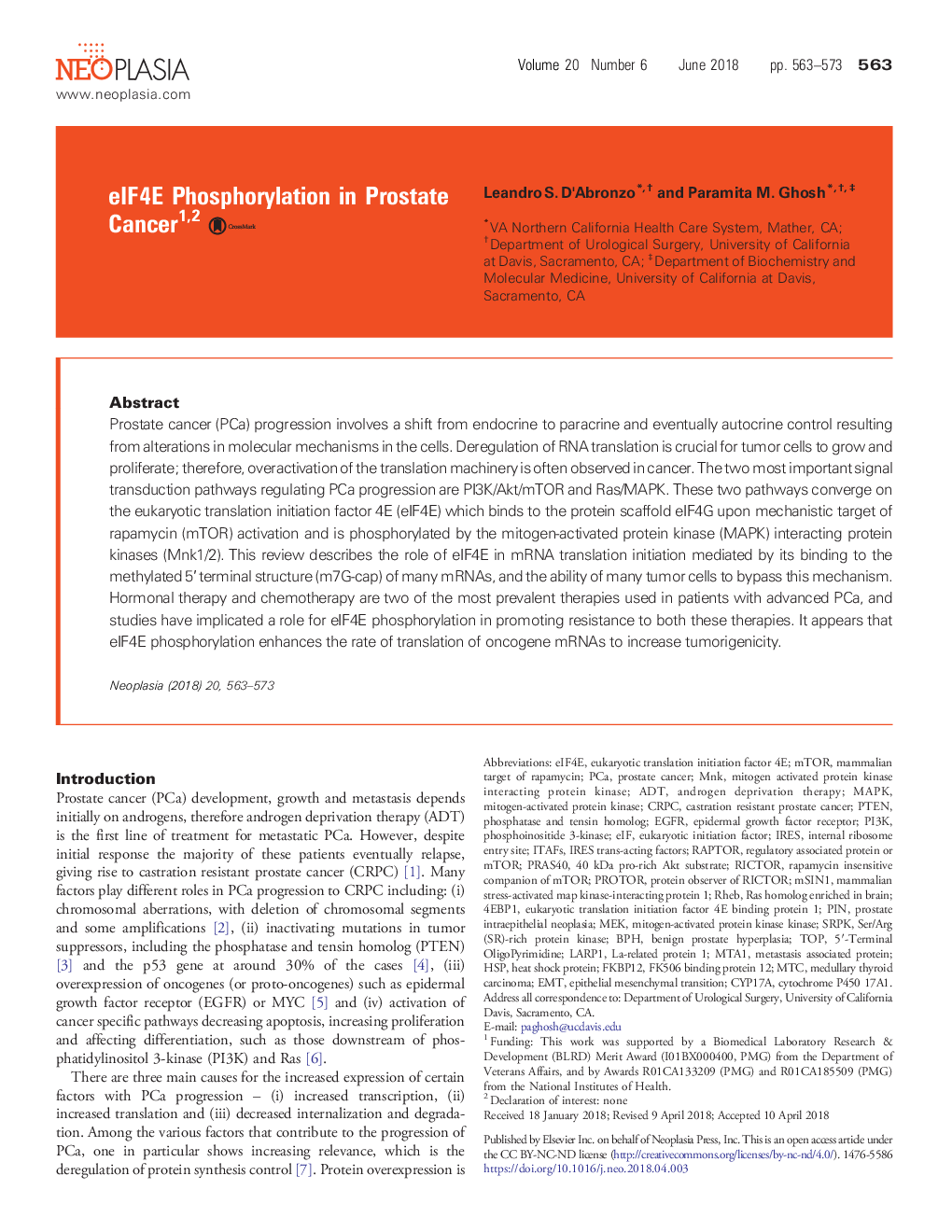| Article ID | Journal | Published Year | Pages | File Type |
|---|---|---|---|---|
| 8456800 | Neoplasia | 2018 | 11 Pages |
Abstract
Prostate cancer (PCa) progression involves a shift from endocrine to paracrine and eventually autocrine control resulting from alterations in molecular mechanisms in the cells. Deregulation of RNA translation is crucial for tumor cells to grow and proliferate; therefore, overactivation of the translation machinery is often observed in cancer. The two most important signal transduction pathways regulating PCa progression are PI3K/Akt/mTOR and Ras/MAPK. These two pathways converge on the eukaryotic translation initiation factor 4E (eIF4E) which binds to the protein scaffold eIF4G upon mechanistic target of rapamycin (mTOR) activation and is phosphorylated by the mitogen-activated protein kinase (MAPK) interacting protein kinases (Mnk1/2). This review describes the role of eIF4E in mRNA translation initiation mediated by its binding to the methylated 5â² terminal structure (m7G-cap) of many mRNAs, and the ability of many tumor cells to bypass this mechanism. Hormonal therapy and chemotherapy are two of the most prevalent therapies used in patients with advanced PCa, and studies have implicated a role for eIF4E phosphorylation in promoting resistance to both these therapies. It appears that eIF4E phosphorylation enhances the rate of translation of oncogene mRNAs to increase tumorigenicity.
Keywords
EGFRSRPKPRAS40mSIN1RHEBCytochrome P450 17A1MTA1eukaryotic translation initiation factor 4E binding protein 1MTCIRESCRPCMNKeIF4E4EBP1FK506 binding protein 12FKBP12PI3KADTHspmTOReukaryotic translation initiation factor 4EeIFMAPKPCAepithelial mesenchymal transitionTOPEMTandrogen deprivation therapyRas homolog enriched in brainRaptorRictorinternal ribosome entry siteProstate cancerCastration resistant prostate cancerEukaryotic Initiation Factorphosphatase and tensin homologphosphoinositide 3-kinaseMEKProstate intraepithelial neoplasiamammalian target of rapamycinBPHBenign prostate hyperplasiaHeat shock proteinmitogen-activated protein kinasemitogen-activated protein kinase kinasePINPtenMedullary thyroid carcinomaEpidermal growth factor receptor
Related Topics
Life Sciences
Biochemistry, Genetics and Molecular Biology
Cancer Research
Authors
Leandro S. D'Abronzo, Paramita M. Ghosh,
